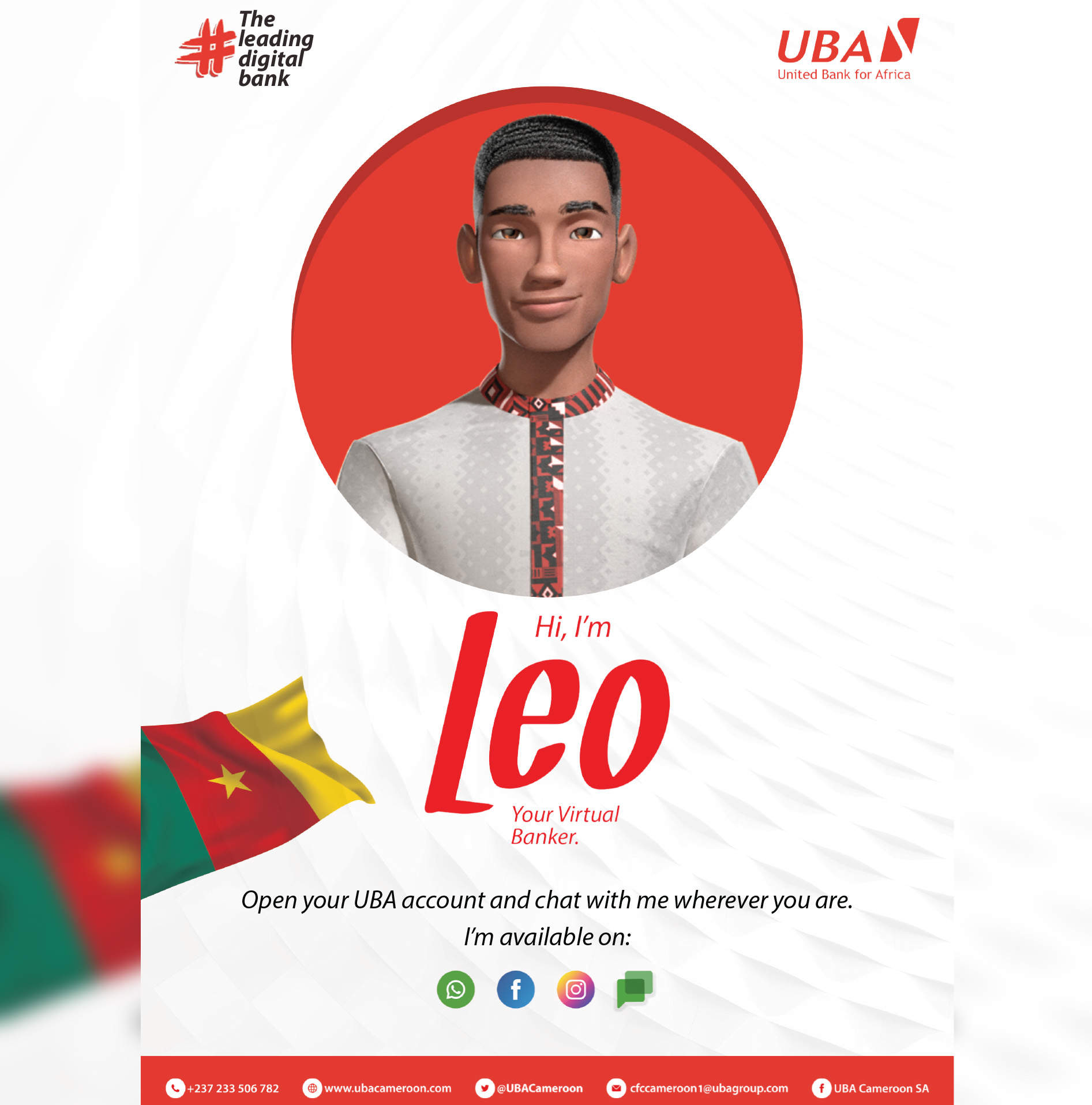The CEO
‘’The African Free Trade Agreement is going to conserve lot of foreign exchange’’
Published
3 ans agoon


An exclusive interview with His Excellency Ibrahim Mohamed Bachir speaks to ND Magazine on several issues from his jurisdiction, passing through Cameroon-Nigeria relations, to the African Free Trade Agreement. Follow these excerpts
ND MAG: CAN YOU GIVE US A BRIEF HISTORY OF HOW THIS CONSULATE GENERAL IN BUEA CAME INTO EXISTENCE, AND WHAT ARE NIGERIANS LIVING IN YOUR JURISDICTION SUPPOSED TO EXPECT FROM YOU AS THEIR CONSUL GENERAL?
CG: The Consulate of Nigeria in Buea came into being in 1961, a year or maybe months after our independence. As you may know, the purpose of a Consulate as a diplomatic mission is to offer assistance to your nationals in that country, and because of the relationship between Nigeria and Southern Cameroon then, where the border was almost like non-existent, with Calabar and Akwa-Ibom, so, and with the huge inter-marriages and cultural affinity almost similar between the Southern Cameroonians and Nigeria, we have a large Nigerian population here, and that is why they deem it necessary to have a Consular mission here, to attend to the daily needs and aspirations of Nigerians living in these Regions. As a Consul General, my work is very distinct and straight forward; first of all, I oversee the activities of Nigerians through an organized Union, and I encourage them to be part of the Nigerian Union so that it becomes easier for all of us, both them, and the Consulate, to look into their problems as a family, as a Union and to address it as such, instead of one hundred thousand people, thirty thousand people, seven thousand people in a community and coming with individual problems, But you find out that if you constitute yourselves into a Union, it makes our work easy, I can attend to these problems into greater details and also attempt to solve it, and I also encourage my compatriots to be law-abiding, to respect the laws of the host country, because you cannot come to another man’s country, no matter how close you are, and begin to disrespect their own laws because each and every country has their own laws that govern the acts of everybody and you cannot be an exception simply because you are a visitor, no, you have to subject yourself to the laws of the land. I also tell them to stay clear of politics but if you feel you have acquired the nationality, look at what the constitution of the country says, an if you want to contest an elective office, then so be it but don’t meddle into the political affairs of a country especially, you know it is very complicated because you may think you are favoring a particular candidate and you find out that the candidate did not necessarily emerge the winner, and that is why we always tell people to never meddle in the internal affairs of your host country because it is out of your reach, concentrate on why you are here, be you a student, worker, mechanic, farmer, confine yourselves within your areas of expertise, live in harmony with your hosts, and then in that case you will find life much more easier for both of us.
ND MAG: MAY WE HAVE A SUMMARY OF YOUR JURISDICTION AS FAR AS NIGERIANS ARE CONCERNED? HOW MANY NIGERIANS ARE IN YOUR AREA OF COMMAND AND WHAT ARE SOME OF THEIR MAJOR ACTIVITIES?
CG: We have a sizeable number of Nigerians in the North West and South West Regions, with a largely predominantly Igbo community in the North West Region who are into large scale and petty businesses; some of them are into subsistence agriculture in order to fed themselves and maybe have some small in excess that can be sold to occupy their pockets with some few CFA Francs. We also have small scale and large-scale businesses owned by Nigerians in the South West Region, with some of them being very successful businessmen. Some of them are in Tiko, Kumba, who are multi-millionaires, in every aspect of it, and we have a lot of Nigerians in the North West, with most of them involved in the selling of automobile spare parts.
ND MAG: DOES THE FACT THAT YOU CONTROL TWO BOTHER REGIONS MAKE YOUR WORK MORE DIFFICULT?
CG: Not quite, except for the security challenges. Throughout my thirty year career at the Nigerian Foreign office, handling consular matters which is challenging, I find it interesting because I am serving my country and I am doing it whole-heartedly, so it gives me the opportunity to relate with my people directly, more so when they are in trouble because as a Consul you are the trouble-shooter, as most at times you are with the Police or in courts, trying to sort out certain matters, like you would find out that a Nigerian has lost for example, his passport through theft, and you will find out that most at times, my work has been that of trouble-shooting, and I like it that way; so, working here doesn’t make any difference as far as I am concerned, except for the security challenges, otherwise, I can go out to Bakassi , travelling through the high sea to meet my people, then to Kumbo and to Nkambe. It is a very satisfying work because it gives me the opportunity to relate with my people and to offer assistance to them, materially, financially, and also in the form of counselling, and may be quite challenging sometimes to meet with everybody but I find it very interesting and I’m up to the task.
ND MAG: WHAT IS YOUR APPRECIATION AS FAR AS DOING BUSINESS IN THE NORTH WEST AND SOUTH WEST REGIONS ARE CONCERNED?
CG: Well, you know my jurisdiction is not the commercial hub of Cameroon, unlike in Douala where you will find the seaport, most of the businesses you would find here are people going to Calabar and coming down with a ship containing some petty things to sell, while the real big businesses are in Douala where you have everything favorable for business. Most of the trading here is petty cross-border trading, with some people going to Taraba State in the North of Nigeria, while some go to Calabar in the South West, to bring some foodstuffs, provisions, for them to sell and make little profits.
ND MAG: WITH MOST NIGERIANS INVOLVED IN THE IMPORTATION OF GOODS IN CAMERROON, WHAT ARE SOME OF THE DIFFICULTIES THEY FACE? AND WHAT SOLUTIONS DO YOU PROPOSE TO RESOLVE THESE ISSUES?
CG: Before this socio-political crisis, the problem has been some irritations along the way where you find some over-zealous security officials asking for some kind of gratification to provide easy access, but otherwise, we are working with the hierarchy here and at the level of the Regions (the highest being the governor’s office) where we have put forward some of the complaints of our nationals, ranging from the security along the way, the issue of extortion, which also are sometimes being perpetrated by armed separatist groups (though we are often told they are simply armed robbers who are hiding under the umbrella of the Amba boys), but all the same, there is no society that do not have challenges especially in developing countries, which is not also to say that they are making excuses for some undesirable elements of the law and order department, but it is important to note that there is no perfect society.
ND MAG: HOW DO YOU APPRECIATE THE RELATIONSHIP BETWEEN CAMEROONIANS AND NIGERIANS LIVING IN THE NORTH WEST AND SOUTH WEST REGIONS?
CG: I can say it is extremely cordial because most of the problems revolves around the blocking of goods by over-zealous security officials, but apart from that, Nigerians here are fully integrated, they have never been attacked, they inter-marry, live in harmony, and as I can tell you, for over my one year stay here, I have never mediated in a case of harassment or brutality perpetrated against a Nigerian by a Cameroonian; they live in harmony and I have always told them to maintain such good relationships because it is wonderful for living together.
ND MAG: HOW DOES THE CULTURAL SIMILARITIES EXISTING BETWEEN THEE REGIONS AND SOME NEIGHBORING STATES IN NIGERIA LIKE THE CROSS RIVER AND AKWA-IBOM HELP IN THE LIVING TOGETHER BETWEEN CAMEROONIANS AND NIGERIANS IN YOUR JURISDICTION?
CG: We also have some villages in the North West of Nigeria, especially in Taraba State (the Fulanis), whose cultures are also similar to those in the North West Region of Cameroon, However, the cultural affinity is wonderful because there’s inter-marriages, especially in the North West where you have the Fulanis, you will discover that it is mostly Fulanis from Nigeria and Cameroon, and you know their cultures are very identical, being predominantly herdsmen. All these forge and brings about a good understanding, thereby reducing friction; so similarly, in Akwa-Ibom and Calabar, I met a number of very highly-placed government officials there who will tell you that either they are married, or their mother is from Cross River or Akwa-Ibom, in addition to them studying in Nigeria. So you will find out that Nigerians are well-rooted in Cameroon thanks to inter-marriages, for example, there are specific areas in Kumba and Bamenda where if you are blindfolded and taken there, you would think you are in Enugu in Nigeria.
ND MAG: THE AFRICAN FREE TRADE AGREEMENT IS THE BIGGEST TRADE AGREEMENT IN THE WORLD SINCE THE CREATION OF THE WORLD TRADE ORGANIZATION. WHAT IS YOUR THOUGHT ABOUT THIS LANDMARK ACHIEVEMENT?
CG: I support the project and also the position taken by my government. Nigeria initially had to delay signing the Agreement because it wanted to understand the nitty-gritty of the Agreement; based on our population and our economy, we are the largest in Africa today; it is not something of because everybody is doing it, we also have to do it, and that is why Nigeria through its President, His Excellency Muhammadu BUHARI, had to study the Agreement in relations to how it would help its very large population. Thank God that after some pains-taking reviews, Nigeria has finally joined other African countries in signing the Agreement, and I think it’s a good thing because if you look at the underlining objective of the Agreement, is to encourage trade amongst ourselves; if you look at most African countries today, their trading partners are from outside the Continent, which means we throw away substantial amounts of Dollars trying to get goods out of Africa. With one of our greatest problems in Africa being that of youth unemployment, trading amongst ourselves in Africa can greatly reduce this phenomenon because African countries will be pumping huge sums of money into other African countries either to purchase raw materials of finished products. I recently met with the present President of the African Development Bank who happens to be a Nigerian, Prof. ADESINA, who applauded the decision to implement the Agreement because to him it will encourage growth amongst ourselves and we wouldn’t have to look for Dollars or Euros.
ND MAG: NIGERIA, AFRICA’S LARGEST ECONOMY, WAS THE LAST TO SIGN THIS AGREEMENT. WHAT DO YOU MAKE OF THE DELAY?
CG: Like I earlier said, we have the largest population and economy in Africa and it was but normal that we take a closer and more detailed look of the Agreement to make sure that it was best for our citizens and economy; you know some of the countries that signed the Agreement could not even measure to a single State in Nigeria in terms of population. So, the Nigerian government had to analyze the Agreement to see if it will not in the long run, cause problems to our economy, especially with the existence of what is known as the ‘’the black market’’, you know it exists; let’s assume you are producing something as small as peanuts and you have a customer base of more than a million Nigerians, it is obvious that you will break even. It is only but normal that the President of Nigeria had to be critical in studying this Agreement, in checking all the nitty-gritties, and we are glad that in the interest of the people, he has finally approved the Agreement at the right time and after due considerations.
ND MAG: HOW WILL THIS CONTINENTAL AGREEMENT HELP AFRICAN COUNTRIES, PARTICULARLY NIGERIA, TO GROW?
CG: It is going to conserve a lot of foreign exchange for the Continent and for our country; instead of you to go and source for Dollar, I am sure the Agreement has to agree that you don’t have to go through the bureaucracies of looking for Euros, Pounds, Dollars, but you can buy within your own local currency, as I can come to your country and buy with your own currency instead of looking for Dollars to change into Naira or CFA Francs because in this process, one is bound to lose. This Agreement has streamlined everything, and localized the whole movement of money, goods and services within the African Continent, encouraging maybe the infrastructural development of African countries including Nigeria.
ND MAG: HOW CAN THIS AGREEMENT INFLUENCE THE PARTICIPATION OF THE AFRICAN DIASPORAS, PARTICULAR THOSE OF NIGERIAN ORIGIN, IN THE DEVELOPMENT OF AFRICA?
CG: You know the word ‘’diaspora’’ simply means you are outside the shores of your country. So, those in Nigeria and those in the diaspora will have business made seemingly easy since they don’t have to look for Dollars, Pounds or Euros to come and trade in Africa; they just need to get the local currency of the country in which they intend to trade with and then travel straight and do their business in the local currency, and with the advent also of the common currency in the ECOWAS Region (about 16 countries involved), it is even going to further reduce the currency stress for business persons operating in the West African Region. You know the whole idea is that this Agreement will reduce the stress in foreign exchange because if you have to go and buy in China you have to look for currency exchange, and so on and so forth, which could be very stressful, but here in Africa, I just carry my local currency in my bag and move straight into the country I want to buy from.
ND MAG: AFTER THE SHIPWRECK IN BAKASSI WHICH CLAIMED THE LIVES OF SO MANY PEOPLE, WE ARE CURIOUS TO KNOW IF THE CONSULATE IS WORKING ON ANY MEASURES TO PREVENT DISASTERS LIKE THAT FROM HAPPENING AGAIN.
CG: Well, it happened within my area of consular jurisdiction, and my government back home is 100% aware of the remote causes of the mishap, and the number of Nigerians who have been rescued, and also those that are still missing and presumed dead. Based on the initial report of loading, we have now suggested to the government that at the Port of departure, let everyone adhere to simple measures of safety, let this kind of ship have a proper manifest, because one of the major problems of that ship was that, the number of people in the ship did not tally with the number written in the manifest, indirectly telling you that even the load may not tally. So, the ship must have been overloaded in terms of persons and goods, that is why we had to talk to the government to draw the attention of the relevant Nigerian agencies working in the Ports to make sure that ships leaving these ports are being properly checked to make sure that they are in order and respect the regulations, because it’s different from the regular engine boats or canoe that carry people illegally; this one is loading from the port with all the regular customs check and everything, so there shouldn’t be any room for any sort of a compromise. The government, I think, is now waiting for the initial result of the investigations since it happened in Cameroonian waters and the Cameroonian government is currently on it. At the level of the Consulate, I was there in person in Limbe, to take stock of the situation, spoke with some of the victims who were traumatized, and also with the help of the Nigerian Union in Limbe, I went to the mortuary to identify one Nigerian lady who unfortunately lost her life. We are very thankful to the Cameroonian government which acted promptly, and saved the lives of many, if not, we would have been saying a different story today; I wrote a letter of appreciation to the Governor of the South West Region, who was present at the sea shores in Limbe to personally take stock of the situation. The Cameroonian military provided buses and escort to transport all the victims to the respective towns since it was a lockdown day (there wasn’t any movement of cars and persons), and I am very grateful to them. Many of the rescued victims of the accident were from Yaoundé and Douala, and the few who were from Tiko received further comfort from the Consulate.
ND MAG: WAS THERE ANY EVIDENCE OF MASS BURIALS AT THE ACCIDENT SITE?
CG: That is a very fake news coming out from nowhere. I can tell you with all certainty that nothing like mass burials took place in the accident site, as nobody was destroyed beyond recognition nor was there no mortuary for those who lost their lives, because that is the only time one can think of a mass burial, but such things never happened I can assure you that it is just a rumor, and a fake news for that matter. I understand there was some disparity in the number of rescued persons, those who had died, and those present in the ship at the beginning of their journey, but that was probably because of the fact that some people had to jump off the ship before it completely capsized, with some rescued by fishermen and either taken to Idenau or Calabar.
ND MAG: WHAT CAN WE EXPECT AS TURN OUT TO THE UPCOMING NIGERIA-CAMEROON TRADE, TOURISM AND CULTURAL FESTIVAL?
CG: From the responses we have got, it is very encouraging because, when it was organized ten years ago, the social media was not this active, so I’m pleased with the responses so far, and we are working tirelessly to ensure that those who will attend the Event will not go back dissatisfied. We want to also thank the Douala City Council, Naija in Diaspora Magazine, and other partners, for their support so far, as they are working tirelessly to make the NTTC a successful venture.
You may like
The CEO
Nigeria’s Dangote in talks with traders for oil refinery loan
Published
3 ans agoon
septembre 15, 2021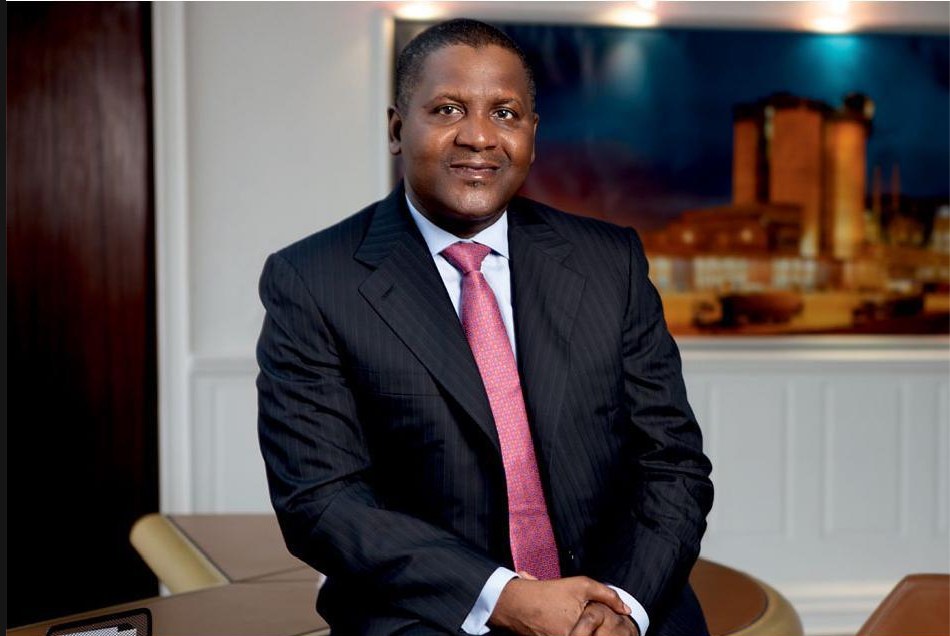

Africa’s richest man Aliko Dangote is in talks with some of the world’s biggest oil traders to help finance his mega refinery project outside of Nigeria’s commercial centre Lagos, sources with knowledge of the matter said.
The 650 000 bl/d refinery, once complete, will be the continent’s largest plant and redraw major trade flows of crude and fuel in the Atlantic basin.
Despite being Africa’s biggest oil producer and exporter, the country depends almost entirely on fuel imports after allowing its significant refining capacity, 445 000 bbl/d, to become dilapidated over several decades.
Many past and current Nigerian officials, including President Muhammadu Buhari, have announced plans to refurbish them but political will has been lacking.
The Natural Resources Governance Institute, a non-profit policy think tank, has previously pointed to the moribund refineries as a key focus of oil corruption and waste in the country.
Hit by economic consequences of the Covid-19 pandemic and soaring construction costs, Dangote needs a cash injection.
Nigeria’s state oil firm NNPC has to agreed to buy a 20% stake in the refinery for about $2.8-billion but Dangote is looking for outside cash. NNPC’s head Mele Kyari said a process was on-going to raise $1-billion with Afreximbank to fund part of its stake purchase.
The billionaire has held talks as recently as a month ago with executives from the world’s top two oil traders – Trafigura and Vitol.
Trafigura and Vitol declined to comment. A spokesperson for the Dangote Group did not respond to multiple requests for comment.
Two sources with direct knowledge said the option of raising another $500-million from a trade house or consortium was being actively explored.
The details of a potential loan from a trading firm have not been finalised but the trader could receive a long-term contract to supply crude and receive cargoes of refined products as repayment.
The refinery has been delayed by several years and the cost has ballooned to $19-billion from Dangote’s earlier estimates of $12-billion to $14-billion. Construction was also delayed due to Covid-19 outbreaks among workers at the site and delays getting materials, two sources with knowledge of the project said.
Many industry sources do not expect any products before the second half of next year.
Swiss traders like Vitol along with Nigerian firms, have cashed-in for years in gasoline-short Nigeria by supplying mega tenders and being part of lucrative crude-for-fuel swap deals for over a decade.
Getting a hold of Dangote’s fuel will give the trader a stranglehold on a key set of new oil flows. Nigeria’s new oil bill, approved last month after nearly 20 years of political wrangling, has added fuel-import licence requirements that experts fear will give Dangote an effective monopoly.
Under the new laws, the regulator will prioritize local refiners for import licences and volumes would be based on production capacity or market share.
While Nigeria will remain open in theory to international trading houses, a partnership with Dangote would be the only way to guarantee a foothold in Africa’s biggest economy.
The CEO
CHIEF OKWUJIAKU BIC: the Leader of Nigerian Progress march in Cameroon
Published
3 ans agoon
août 31, 2021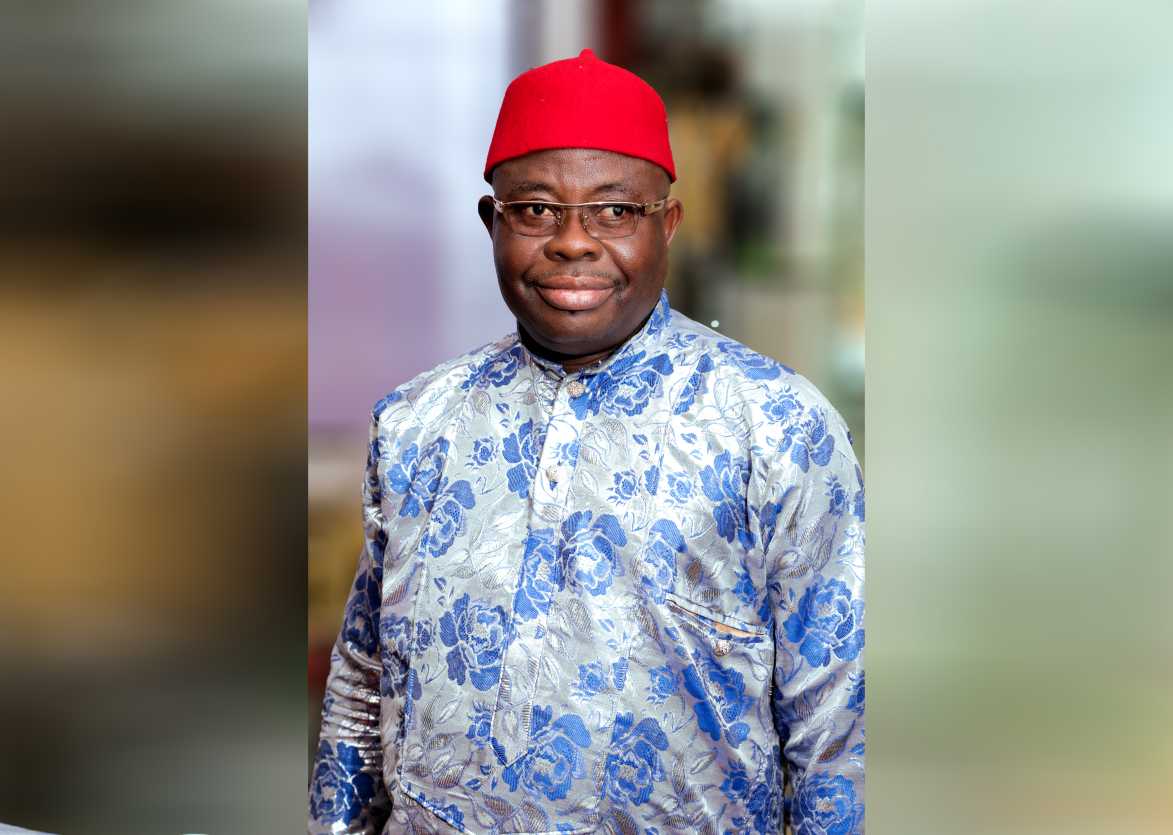

The Nigerian Union branch in Douala is the largest of all the Union’s branches in Cameroon, especially as the City of Douala is Cameroon’s economic capital, and a majority of Nigerians living in Cameroon are primarily business people; it is estimated that that out of the over 4 million Nigerians residing in Cameroon, Douala alone hosts about half of that Nigerian population. For over a year now, Chief OKWUJIAKU BIC has been the one saddled with the responsibility of guiding his fellow countrymen to success outside of Nigeria.
Though it is a very difficult task, Chief OKWUJIAKU, has lived up to his promises, overseeing several ground-breaking projects, including the goodwill donation made to the internally displaced Anglophone Cameroonians living in Douala and its environs, that have made the Douala branch of the Nigerian Union, one of the most active associations in Cameroon.
Despite a relatively large success, Chief OKWUJIAKU BIC, is not relenting in his efforts in a bid to offer to Nigerians living in Cameroon, a platform to spark long-lasting success; he is at the fore-front of the Nigeria-Cameroon Trade, Tourism, and Cultural Festival (NTTC) to be organized with the Nigeria Consulate General of the Littoral and West Regions in partnership with all Nigerian diplomatic missions in Cameroon. The NTTC is a platform that will bring together Nigerians and Cameroonians in the domains of trade, tourism and culture, scheduled to take place in Douala by the end of September 2019; in the Festival, Nigerians are expected to tap from the available business opportunities existing in Cameroon, and vice-versa.
After a decade has passed since the organizing of the last edition of the NTTC, Chief OKWUJIAKU’s dynamism and vision for success, seemed to have been the catalyst to the holding of just the 2nd Edition of the Festival; and apart from just being the President of the Nigerian Union branch of Douala, he is known to be a goodwill ambassador, not just to Nigerians, but also to Cameroonians, whom he has either employed or granted scholarships.
Known to be a very down-to-earth man, Chief OKWUJIAKU BIC, in an interview while handing over financial and material gifts to some Cameroonians in distress, told the Governor of the Littoral Region of Cameroon that, he would rather want to be remembered by his works, and not by the level of personal success he has achieved.


Hon. Abike Dabiri-Erewa has several times been described as a sterling Nigerian amazon, an outstandingly brilliant broadcaster who later transmitted to an outstandingly, brilliant parliamentarian. A worthy, compassionate, fair, firm, respected and courageous leader. Fondly called ”Mother of Teresa of the tube” because of her compassion for the less privileged, and now ”Lady Diaspora” for pioneering efforts in putting Diaspora Affairs on the front burner.
Hon. Abike Dabiri-Erewa spent 15 years of meritorious service at the Nigerian Television Authority (NTA) where she stood out for her ability to use journalism to bring succour to millions of Nigerians especially children, women and the less privileged. We can’t forget the story of Mary, the miracle baby, story of a girl being claimed by 3 mothers, which Abike painstakingly investigated for 8 years to a logical conclusion.
Born in Jos, Plateau State, an indigene of Ikorodu, Lagos State, Abike represented the people of Ikorodu Federal Constituency in the House of Representatives from June 2003 to June 2015, she served as Chairman House Committee on Media and Public Affairs (June 2003 to June 2008). As Chairman Media, she worked at giving the House a credible image through absolute openness and transparency, And as Chairman House Committee on Diaspora Affairs (June 2008 till 2015), her major spotlight was in her advocacy and calls for justice and fairness for Nigerians abroad. From China, Pakistan, Libya, to USA, Northern Cyprus, Saudi Arabia, Russia, Brazil and many more countries, her intervention was impactful.
She championed and sponsored the Freedom of Information Bill (FOI bill) and the Violence Against persons Bill, which have both been signed into law in Nigeria. The Nigerian Infant Welfare Scheme Bill, Nigerians with Disabilities Bill, A Bill to amend the railway act to allow private sector and state participation, Nigerian Diaspora Commission Bill, and A Bill to Promote the Advancement of Nigerian Women and Girls, among many others.
She voluntarily did not seek re-election for a 4th term in the parliament. In her words “Let’s give others a chance”. She served as the Senior Special Assistant to the President on Foreign Affairs and Diaspora from 2016- 2019, and now she has been appointed Pioneer Executive Chairman/CEO Nigerians in Diaspora Commission a position she is serving with diligence, effectiveness and passion.
Abike has always worked with passion and compassion. Let’s mention a few. From what looked like a scene from a Soap Opera from her days at NTA, she successfully concluded the puzzling story of “Mary the Miracle baby” a new born baby who was being claimed by three mothers, which Abike painstakingly resolved. She thereafter ensured that Mary had an education through to the University level by placing her on her scholarship scheme. And when Miss Oladapo Bisola Suliat cried for help, a 19 year old student who was down with Lymphoblastic Leukaemia and needed to get to India urgently for medical attention, Abike resolved her challenge within 24 hours.
What about her intervention in the case of Zainab Habibu Aliyu, a 22 year old girl who was imprisoned in Saudi Arabia for an offence she didn’t commit, a victim of a drug cartel. Working with other officials from the Ministry of Foreign Affairs and Justice, President Muhammadu Buhari’s prompt intervention saved Zainab.
It is therefore not surprising that she has won over 350 awards both internationally and locally. Some of these awards include Bridge builders Award in Washington, International African Woman By Women 4 Africa in London, Catholic Young Men Association (CYMA) Award for Leadership, UNICEF Child Friendly Award, Certificate of Recognition from California Legislative Assembly, This Day 50 Women At 50 Achievers Award, Nigerian In Diaspora Organization Globe Awards F.R.N people’s choice Awards, African Parliamentary Award, Committee Chairman of the Decade, Winner of the NIDO Global Award, Canada, Federal Republic of Nigeria people choice awards. Three times winner of Representative of the year, five times winner of Female representative of the year, Congressman Donald M. Payne (US House of Reps) Award and Certificate of special congressional recognition for her unwavering commitment to humanity and serving as Chairman for Nigeria House Representatives Committee on Diaspora Affairs. African Parliamentary Award, 2010, South-west House of Representatives member of the Decade, African Parliamentary Award, Committee Chairman of the Decade, Chief Obafemi Awolowo (AWOIST) leadership Award, as the Grand Officer of the Masses (GOM), in due recognition of her selfless services to humanity, Commander of Great Ife (CGI), and Zenith Bank JEWEL OF THE FUTURE Award. She has been named as one of the top 50 Nigerian women and top 200 women in the world by Richtopia.
Hon. Abike Dabiri-Erewa has been a voice for the voiceless and remains a symbol of hope and inspiration to many. Her comportment, integrity, virtues and ideals are indeed qualities worthy of emulation, and her guiding philosophy at all time is that, success is not about age, it is not about character, it is not by how much you have but how many lives you are able to touch.


Tunde Onakoya: Igniting the Spark of Possibility Through Chess »


SPOTLIGHT : Dr. Oluyinka Olutoye A Beacon of Hope in Pediatric Surgery
« Pioneering Pride: Nigeria’s First Female Officer Graduates from Royal Military Academy Sandhurst »
Trending
-

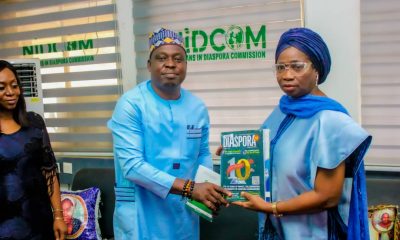

 diplomacy4 semaines ago
diplomacy4 semaines agoNiDCOM, ND-Group Partner To strengthen Nigeria-Cameroon Diaspora Relations
-

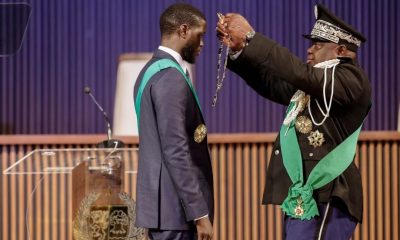

 News3 semaines ago
News3 semaines agoSENEGAL WITNESSES HISTORIC INAUGURATION: FROM PRISONER TO PRESIDENT IN WEEKS
-

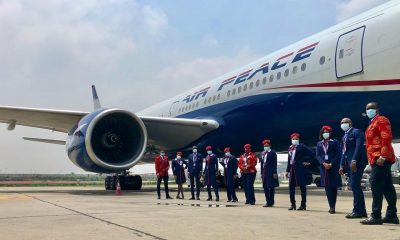

 News3 semaines ago
News3 semaines agoAIR PEACE LAUNCHES LAGOS-LONDON FLIGHT SERVICES: A MILESTONE FOR NIGERIAN AVIATION
-

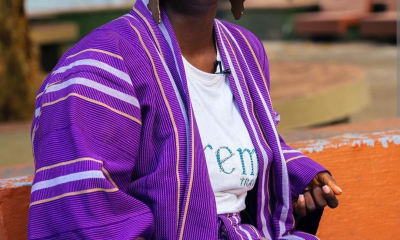

 News2 semaines ago
News2 semaines agoPelumi Nubi: Pioneering Adventure from London to Lagos
-
Features2 semaines ago
« Pioneering Pride: Nigeria’s First Female Officer Graduates from Royal Military Academy Sandhurst »
-

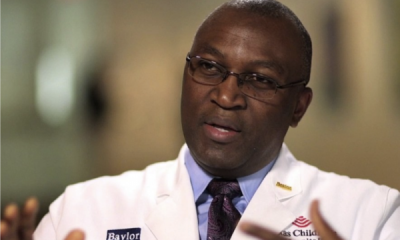

 Features1 semaine ago
Features1 semaine agoSPOTLIGHT : Dr. Oluyinka Olutoye A Beacon of Hope in Pediatric Surgery
-



 Entertainment2 jours ago
Entertainment2 jours agoTunde Onakoya: Igniting the Spark of Possibility Through Chess »






